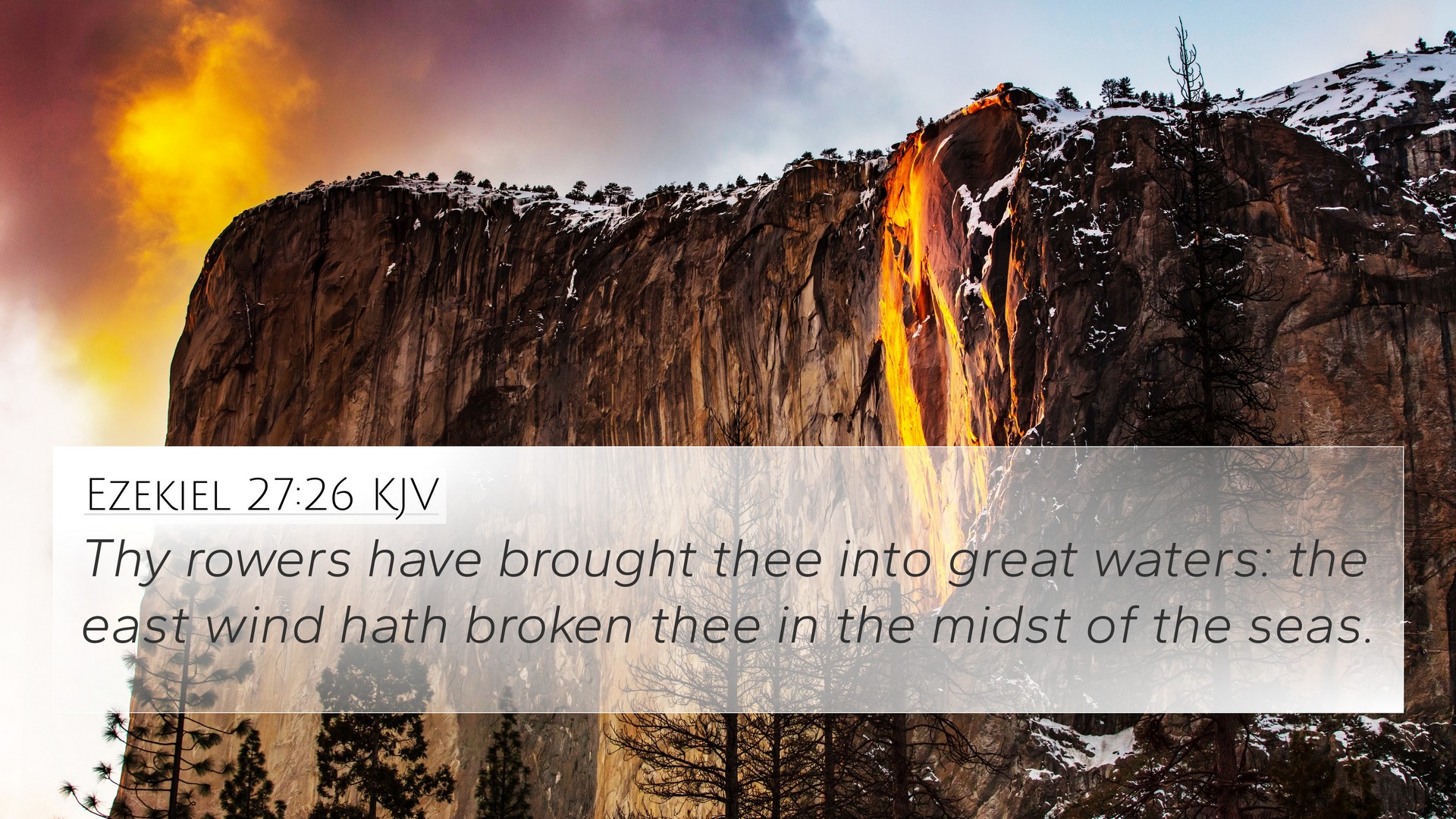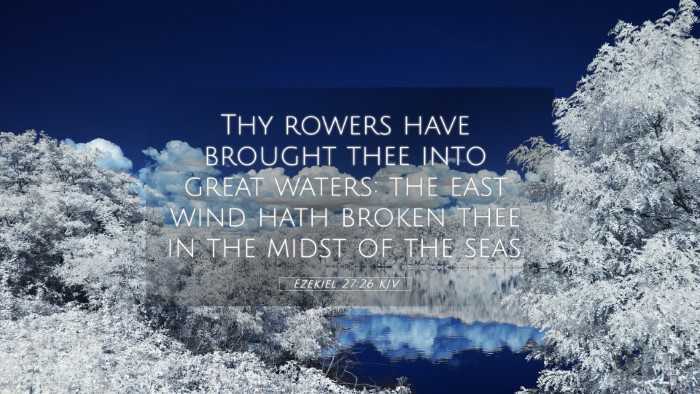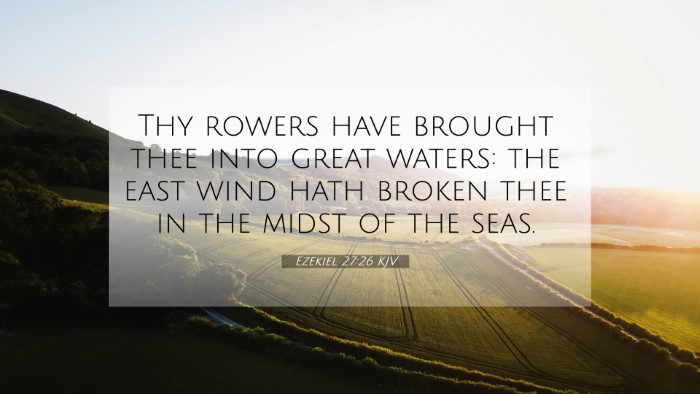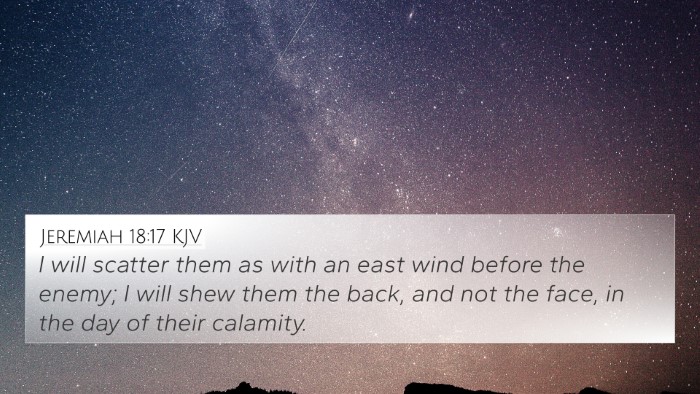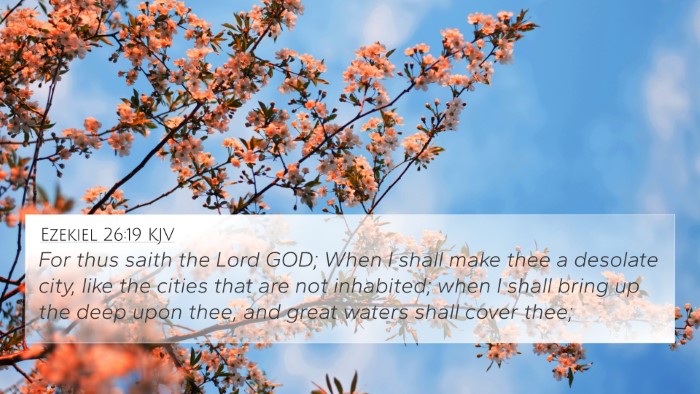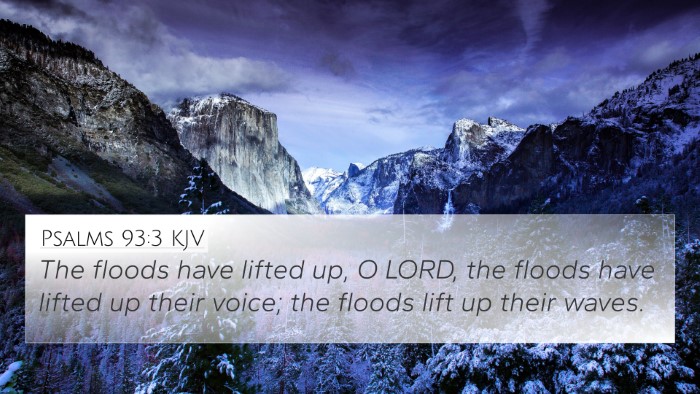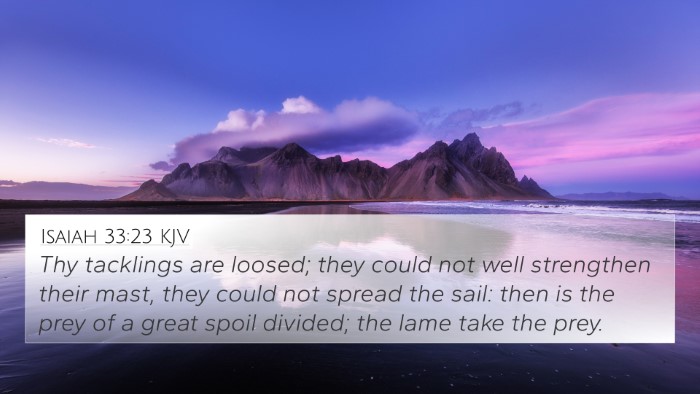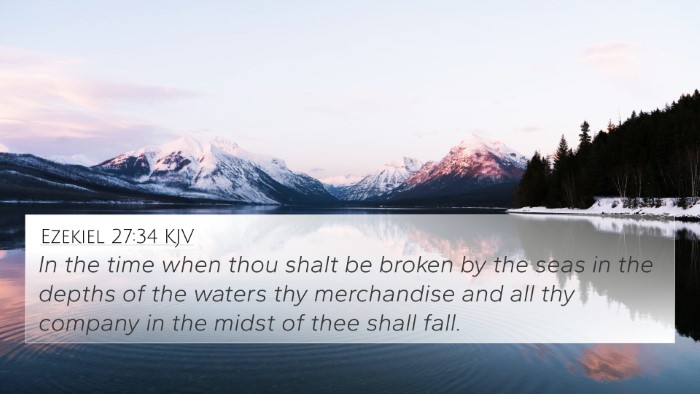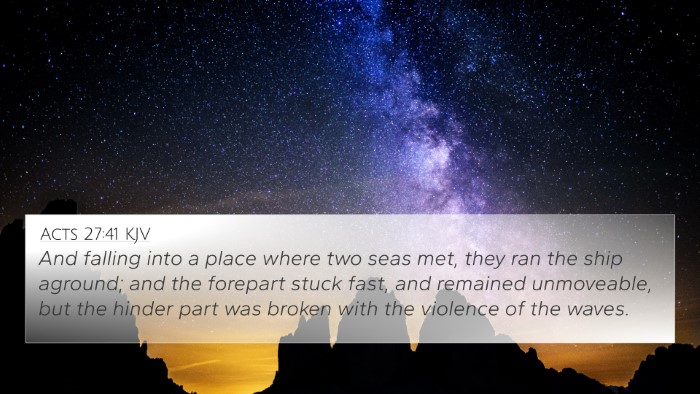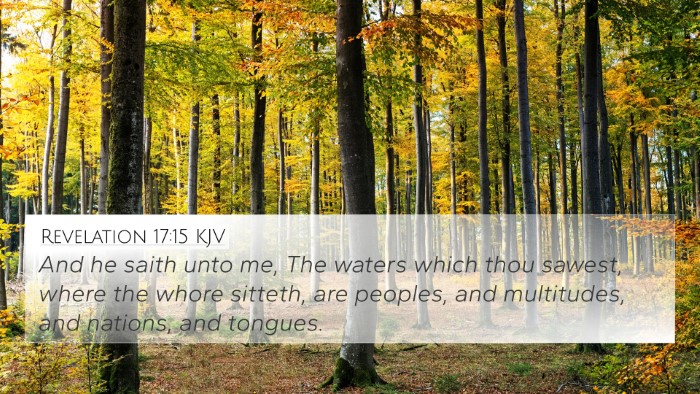Ezekiel 27:26 - Summary and Interpretation
Verse: "Thy rowers have brought thee into great waters: the east wind hath broken thee in the midst of the seas." - Ezekiel 27:26
Verse Meaning and Significance
The verse is part of a lamentation for Tyre, illustrating its fall from greatness and the judgment against it. Ezekiel uses maritime imagery to depict the downfall of this significant trading city, emphasizing the vulnerability of even the most fortified cities to divine judgment.
Insights from Public Domain Commentaries
-
Matthew Henry:
Henry discusses how the rowers symbolize the merchants and leaders of Tyre, who aided in its prosperity. However, their efforts are in vain against divine judgment, revealing the futility of relying on earthly powers.
-
Albert Barnes:
Barnes emphasizes the "great waters" as trials that lead to Tyre's destruction. The east wind represents God's judgment coming swiftly and unexpectedly, disrupting the stability that Tyre enjoyed.
-
Adam Clarke:
Clarke explains that the imagery of a ship in distress illustrates the impending doom that befalls Tyre. The destruction foretold here serves as a warning to all nations about the consequences of pride and sin.
Cross References for Ezekiel 27:26
This verse connects with several other biblical texts, highlighting the theme of divine judgment and the fragility of worldly power. Below are some pertinent cross-references:
- Isaiah 23:1: Discusses the burden of Tyre and its ultimate destruction.
- Ezekiel 26:19-21: Details the desolation brought upon Tyre after God's judgment.
- Jeremiah 25:22: Mentions the kingdoms of the maritime regions that will face God's wrath.
- Revelation 18:17: Describes the fall of Babylon, drawing parallels to Tyre's fate as a prominent trading entity.
- Matthew 15:14: Explains the fate of blind leaders, echoing the downfall of those who lead in sin.
- Psalm 107:25: Talks about how the Lord commands and brings the stormy waters, reflecting His power over nature.
- Isaiah 17:12-14: Provides another example of nations being swept away by God’s commands.
Thematic Connections
This verse reinforces several important theological themes, including:
- Divine Judgment: The theme of God’s sovereignty over nations and their fates is prevalent throughout the Bible.
- Futility of Human Efforts: The inadequacy of earthly leaders and their plans in the face of divine intervention is a recurring message.
- The Fragility of Prosperity: Displays the transient nature of material wealth and security, echoing the broader biblical warnings against misplaced trust.
Conclusion
In Ezekiel 27:26, the convergence of maritime imagery and divine judgment presents poignant insights into the nature of human dependence on worldly power. Cross-referencing this verse with others in scripture enriches the reader's understanding of God's sovereignty and the ultimate futility of earthly pride. Through careful examination and thematic analysis, believers can draw crucial lessons about faithfulness, humility, and the transient nature of worldly achievements.
Using Cross-References in Biblical Study
For those interested in further exploring cross-references in the Bible, various tools and methods can enhance your study:
- Bible Concordance: A useful tool for locating specific verses and finding related texts.
- Cross-Reference Guides: These guides help locate verses that connect thematically or contextually.
- Inter-Biblical Analysis: Understanding how Old Testament prophecies relate to New Testament fulfillment is rewarding.
- Bible Study Software: Many tools available allow for quick and efficient cross-referencing within the text.
- Comparative Studies: Looking at themes across books, such as Pauline epistles or the Gospels, can yield rich insights.
